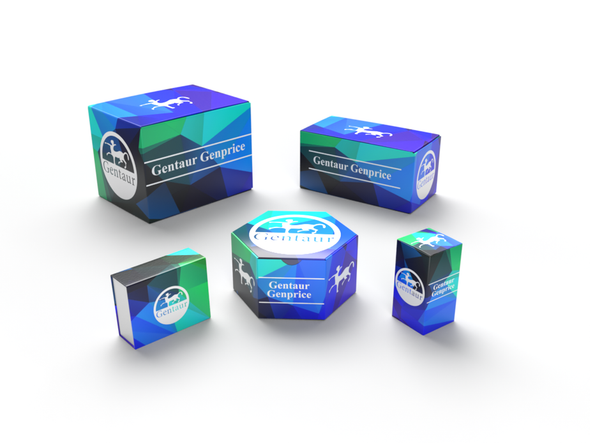Description
CCDC50 Antibody | 57-583 | Gentaur UK, US & Europe Distribution
Host: Rabbit
Reactivity: Human
Homology: Predicted species reactivity based on immunogen sequence: Mouse, Rat
Immunogen: This CCDC50 antibody is generated from rabbits immunized with a KLH conjugated synthetic peptide between 86-114 amino acids from the Central region of human CCDC50.
Research Area: Other
Tested Application: WB, IHC-P
Application: For WB starting dilution is: 1:1000
For IHC-P starting dilution is: 1:10~50
Specificiy: N/A
Positive Control 1: N/A
Positive Control 2: N/A
Positive Control 3: N/A
Positive Control 4: N/A
Positive Control 5: N/A
Positive Control 6: N/A
Molecular Weight: 36 kDa
Validation: N/A
Isoform: N/A
Purification: This antibody is purified through a protein A column, followed by peptide affinity purification.
Clonality: Polyclonal
Clone: N/A
Isotype: Rabbit Ig
Conjugate: Unconjugated
Physical State: Liquid
Buffer: Supplied in PBS with 0.09% (W/V) sodium azide.
Concentration: batch dependent
Storage Condition: Store at 4˚C for three months and -20˚C, stable for up to one year. As with all antibodies care should be taken to avoid repeated freeze thaw cycles. Antibodies should not be exposed to prolonged high temperatures.
Alternate Name: Coiled-coil domain-containing protein 50, Protein Ymer, CCDC50, C3orf6
User Note: Optimal dilutions for each application to be determined by the researcher.
BACKGROUND: This gene encodes a soluble, cytoplasmic, tyrosine-phosphorylated protein with multiple ubiquitin-interacting domains. Mutations in this gene cause nonsyndromic, postlingual, progressive sensorineural DFNA44 hearing loss. In mouse, the protein is expressed in the inner ear during development and postnatal maturation and associates with microtubule-based structures. This protein may also function as a negative regulator of NF-kB signaling and as an effector of epidermal growth factor (EGF) -mediated cell signaling. Alternative splicing results in multiple transcript variants encoding distinct isoforms. [provided by RefSeq].






